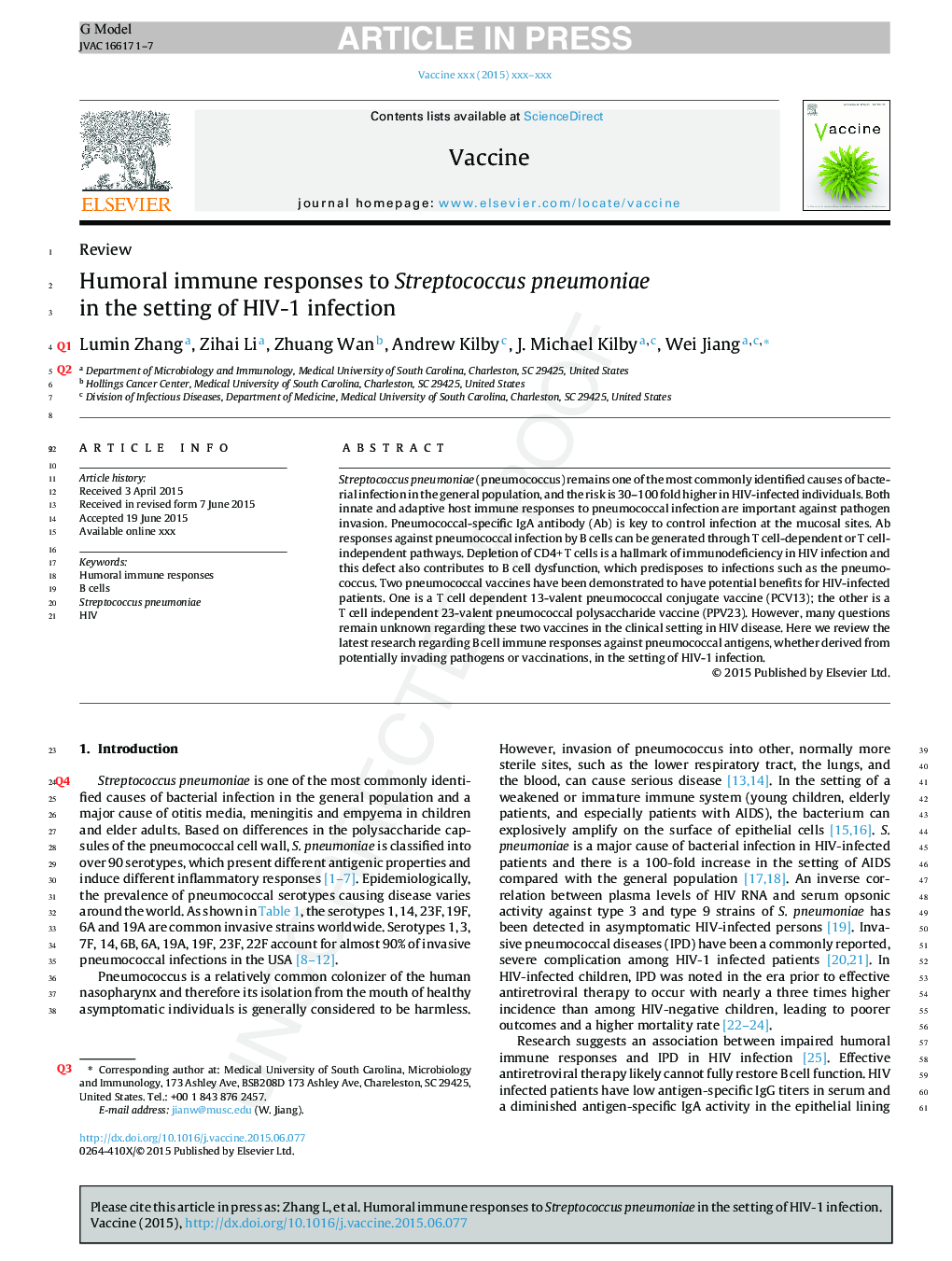| Article ID | Journal | Published Year | Pages | File Type |
|---|---|---|---|---|
| 10963773 | Vaccine | 2015 | 7 Pages |
Abstract
Streptococcus pneumoniae (pneumococcus) remains one of the most commonly identified causes of bacterial infection in the general population, and the risk is 30-100 fold higher in HIV-infected individuals. Both innate and adaptive host immune responses to pneumococcal infection are important against pathogen invasion. Pneumococcal-specific IgA antibody (Ab) is key to control infection at the mucosal sites. Ab responses against pneumococcal infection by B cells can be generated through T cell-dependent or T cell-independent pathways. Depletion of CD4+ T cells is a hallmark of immunodeficiency in HIV infection and this defect also contributes to B cell dysfunction, which predisposes to infections such as the pneumococcus. Two pneumococcal vaccines have been demonstrated to have potential benefits for HIV-infected patients. One is a T cell dependent 13-valent pneumococcal conjugate vaccine (PCV13); the other is a T cell independent 23-valent pneumococcal polysaccharide vaccine (PPV23). However, many questions remain unknown regarding these two vaccines in the clinical setting in HIV disease. Here we review the latest research regarding B cell immune responses against pneumococcal antigens, whether derived from potentially invading pathogens or vaccinations, in the setting of HIV-1 infection.
Related Topics
Life Sciences
Immunology and Microbiology
Immunology
Authors
Lumin Zhang, Zihai Li, Zhuang Wan, Andrew Kilby, J. Michael Kilby, Wei Jiang,
